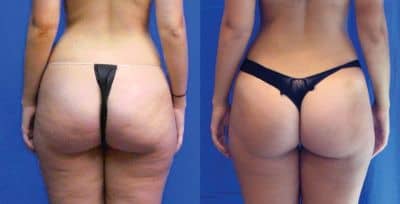By Phil Galewitz
If you’re considering Botox to erase frown lines or liposuction to get rid of love handles, you might want to move fast. The "botax" may be on the way.
The $848 billion health care bill unveiled Wednesday by Senate Majority Leader Harry Reid, D-Nev., includes a 5% tax on cosmetic procedures and surgeries. The tax, which would take effect in January, would raise an estimated $5 billion over the next decade to help pay for extending health care coverage to millions of Americans.
Plastic surgeons decried the proposal, saying their practices were battered by the recession and are just beginning to recover. "This will be devastating to doctors who do cosmetic surgery," said Angelo Cuzalina, MD, a Tulsa cosmetic surgeon and the president-elect of the American Academy of Cosmetic Surgery. "You’d be surprised how price sensitive people are to this…It’s a tax against women and the baby boomer generation having these procedures."
Some worried that the tax would be applied to more and more procedures. "It’s cosmetic surgery today, laser eye surgery tomorrow, then who knows maybe it’s the knee-replacement surgery to help you play golf," said Gary Smotrich, a plastic surgeon in Lawrenceville, N.J.
Diane Archer, director of the health care project at the Institute for America’s Future, a progressive think tank, isn’t sympathetic toward the plastic surgeons’ concerns. "We pay taxes on virtually every good and service, and luxury goods and services should be taxed even higher," she said. "This is not a medical service. It’s the equivalent of a facial or a massage. Its something that’s nice to have but not necessary."
She said the cosmetic surgery tax is preferable to a tax on so-called Cadillac health plans which could penalize lower- and middle-income employees with high-cost coverage. Under the latest Senate bill, fewer health plans would be subject to the tax, compared to an earlier Senate proposal.
About 12 million cosmetic procedures and surgeries — which typically aren’t covered by insurance — were performed last year, at a total cost of $10.3 billion, according to the American Society of Plastic Surgeons. The vast majority, 10.4 million, were minimally-invasive services such as Botox injections and chemical peels. The most common surgeries were breast augmentation, liposuction and tummy tucks, but all of those procedures declined at double-digit rates last year.
New Jersey Already Has Tax
It’s unclear exactly which services would be covered by the proposed tax in the Senate bill. The Senate legislation refers to the Internal Revenue Service definition of cosmetic surgery: "Any procedure which is directed at improving the patient’s appearance and does not meaningfully promote the proper function of the body or treat illness or disease." There’s no comparable provision in the House-passed health bill.
New Jersey, where a 6 percent levy on cosmetic procedures and surgeries took effect in 2005, is the only state with such a tax. Doctors say many patients go to New York or Pennsylvania for the most expensive procedures to avoid the tax, which has brought in about $11 million a year, only about half as much as expected.
"It’s hurt all of our practices," said Smotrich.
The New Jersey tax applies to such procedures as hair transplants, cosmetic injections, dermabrasion, laser hair removal, laser skin resurfacing, laser treatment of leg veins, cosmetic dentistry and breast augmentation. It doesn’t apply to everything – for example, post-cancer reconstructive breast surgery is not subject to the tax.
Plastic surgeons said the proposed federal tax would be troublesome because it would be difficult to determine which procedures are elective and which are medically necessary.
Is The Tax Unfair to Job-Seekers?
Devon Herrick, a health economist at the Dallas-based National Center for Policy Analysis who had a chin implant several years ago, said the tax would reduce demand for the procedures. "This won’t crater the industry, but it will affect the growth rate," he said.
Other critics said the proposed tax also would hurt the growing number of medical spas that offer Botox and other injectables.
"I feel the 5% tax on aesthetic procedures will most likely be viewed as unfair, as many clients are receiving Botox and fillers to maintain a competitive edge in this youth-oriented and dismal economy," said Bonnie Marting, director of medical aesthetics at the Anushka Cosmedical Centre and Spa in West Palm Beach, Fla.
Andrea Hass, MD, FACS, a plastic surgeon in Palm Beach Gardens, Fla., agreed. "People will start to think twice about it," she said. "This hurts the people who save money to make the down payment to help themselves look better."
Plastic surgeons reject the notion that only the rich get plastic surgery, saying that many middle-class people are having the procedures, especially given the wider availability of less costly and invasive procedures and increased financing options.
And some in the industry see this as too much government interference in one specialty.
"The government appears to be playing at Robin Hood – taking from the rich to pay the poor," said Wendy Lewis, a beauty industry consultant based in New York. "However at this moment, every service business is feeling the pinch, and this bill will affect physicians and their employees, vendors, manufacturers, businesses selling into this industry."
"Cosmetic surgery is down at the rate of 40% to 60% in some regions, and this will not help matters," Lewis said.
[Source: Kaiser Health News]


